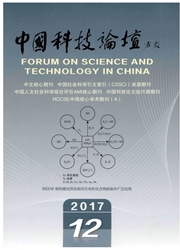

 中文摘要:
中文摘要:
经历25年的飞速发展,我国孵化器已取得举世瞩目的成绩,但还面临转型升级的重任。作为转型成功的经典案例,深圳清华大学研究院的经验是否代表着未来转型方向的问题值得探讨。在调研中,我们发现深清院存在着孵化企业获得资源不均衡的特殊状况。面对已有理论框架,普遍预设孵化企业从孵化器所获取的资源是均等的假设前提,本研究转而借助扎根理论的研究方法,从案例中建构出一套孵化器企业分层的中层理论。
 英文摘要:
英文摘要:
After 25 years' rapid growth, Chinese incubators have already attracted worldwide attention. But at the same time, they still need transform and upgrade. As a successful case, whether the experience of Research Institute of Tsinghua University in Shenzhen (RITS) can be the future of other incubators is worth to discuss. During our survey, we found that different incubatees in R1TS have different resource, but exist studies believed all incubatees in the same incubator should have the same resource. Based on the Grounded Theory, our study found that the disequilibrium was made by an institutional design. After different resource deployed by different departments, the status, resource and sense of identity in incubatees presented a stratification system. The status changed in stratification based on the entry and exit of venture capital, but too much interventional management caused the status stabilization of "control enterprises", and it may also reduce their independence.
 同期刊论文项目
同期刊论文项目
 同项目期刊论文
同项目期刊论文
 期刊信息
期刊信息
